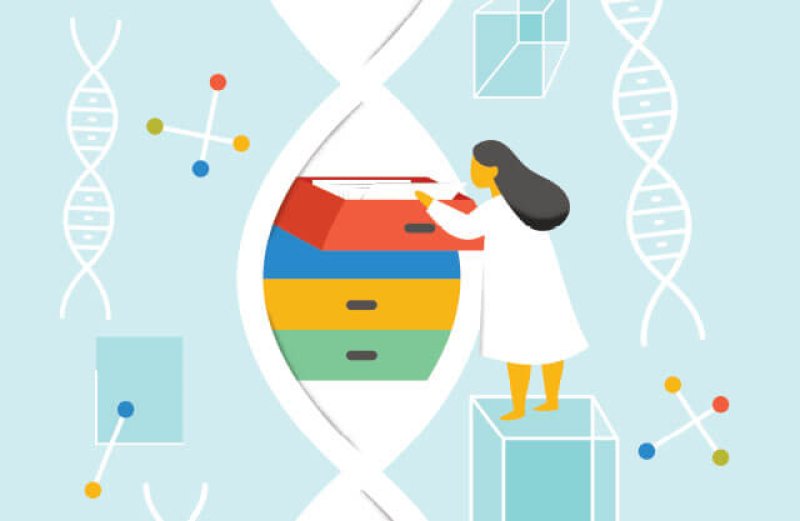The amount of global data is estimated to be around 44 zettabytes. A 15-million-square-foot warehouse can hold 1 billion gigabytes, or .001 zettabyte. So you would need 44,000 such warehouses – which would cover nearly the entire state of West Virginia.
John Chaput is hoping to change all that.
A professor of pharmaceutical sciences at UCI with appointments in chemistry and molecular biology & biochemistry, he and his lab team are striving to improve a technique that’s already on the bleeding edge of synthetic biology and data storage. By employing an artificial variation of DNA, Chaput is transforming the field of semipermanent data storage.
…
By employing the four-letter nucleotide code used in DNA, rather than the binary system, Chaput’s team can effectively transcribe data to a strand of DNA, which is made up of four components: adenine, thymine, cytosine and guanine, referred to as A, T, C and G. By sequentially assigning each nucleotide a specific binary number, the researchers can essentially write a binary sequence using these nucleotides.
He has theorized that – due to the medium’s incredible complexity – all of human history, every book ever written, every song ever sung and every Instagram brunch photo ever taken could be stored in half a cup of liquid TNA.
“These systems open the door to new possibilities,” Chaput says.































